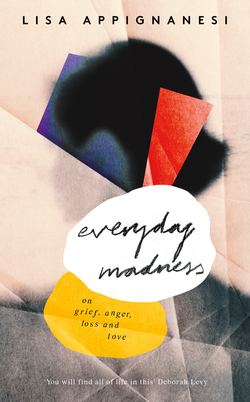Читать книгу Everyday Madness: On Grief, Anger, Loss and Love - Lisa Appignanesi - Страница 13
4
ОглавлениеTHIS IS NOT A ROMANTIC TALE. I would have liked it to be a story of adoring and honouring and tears of sadness over the great loss of a fine man. It is that, too, but it’s not that alone. Death, like desire, tears you out of your recognizable self. It tears you apart. The eyes and arms, the recognition that used to hold you together as you, are no longer there. That you was all mixed up with the other. And both of those have disappeared. The I who speaks, like the I who tells this story, is no longer altogether reliable. Though now that I can begin to shape a sentence with that pronoun in it, I feel a little more like my old, if altered, self.
A day before he died, the morning after he had been moved into the fortress-like high-care hospital room from the cancer clinic next door, John uttered the words that resonated through me for months. Words can be performative.
We had been living for two weeks on the top floor of a building overlooking London’s busy Tottenham Court Road, a three-minute walk from the shiny new clinic where the daily treatments took place. This was the hospital hotel. Each room had a patient and a partner or carer in it. There was a lounge and a breakfast-dining area. From one point of view, it was a tourist’s delight – modern, clean, functional, central – but it was also a hellhole of illness and suffering. Everyone smiled, pretended cheer.
I was a star Pollyanna: though I’m a terrible and impatient nurse, I seem to be able to see the bright lining of most clouds, even thunderous ones. That night, I couldn’t. It might have occurred to me then, or perhaps it was later, that no one at the hospital – in all respects a wonderful and pioneering institution – ever talked of death. They talked only of chances. We were gamblers in a high-tech casino, playing against unknown odds – unknown not only because of the newness of the treatment but because each body, let alone each mind and set of emotions, is so uncooperatively individual.
That evening, we had watched a DVD of some stand-ups and laughed uproariously. In the middle of the night, John fell over on his way to the bathroom some three metres from the bed. I was meant to take him to the clinic if that happened. Falling. It was a signal we had been warned of. He was in neutropenia – a pretty word used to describe a scary state of no immunity in which infections can rampage. It was four days after Day Zero – the apocalyptic name given to the day when the harvested stem cells had gone back into his chemically cleaned system. But the cells hadn’t yet started their rebooting activity.
John flatly refused to leave the hotel room. He said he was fine and we would go in the morning. He was a man of considerable authority and stubbornness. I gave in without much argument. He did seem sort of fine now that he was in bed again. Rousing an emergency nurse might be worse than just sleeping. Or so I told myself.
In the clinic the following morning, we learned that an internal infection had set in. The nurse chided. A move into the multi-storey University College Hospital would follow imminently – or, rather, when a bed came free in the haematology ward with its sealed quarters. That only happened in the evening. With John in a wheelchair we were led along a subterranean passage through a block and a half of London streets. As the corridor twisted and turned, I wondered whether we were skirting the morgue where my father had lain.
Just like a thriller, I tried to joke.
Only as I write this does the body count my attempted joke may have conjured up for him come to me.
I waited until he was settled and asleep, then went to that now foreign place called home.
The next day was a Sunday. I drove to the hospital: it made it easier to bring food and fresh books. So focused was I on John getting better that I conveyed a week’s worth. When I got to his room, he was asleep. Staff were busy elsewhere. There was no one of whom I could ask questions.
